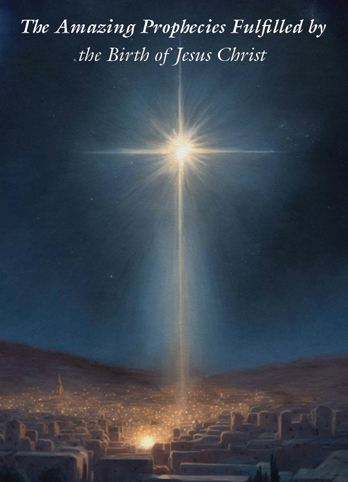Back to series



The Enemy’s Attempt to Kill the Messiah
December 23
View the Full Advent Calendar
Music recording by Ann Emery and Lezlie Taguding. From Coventry Carol by Robert Croo, 1534. View the Lyrics. Narration by Aimee Riegert.
Old Testament Prophecy:
“Thus says the Lord: ‘A voice is heard in Ramah, lamentation and bitter weeping. Rachel is weeping for her children; she refuses to be comforted for her children, because they are no more.’”
– Jeremiah 31:15
(Jeremiah wrote this between 626 and 586 BC)
New Testament Fulfillment:
“Then Herod, when he saw that he had been tricked by the wise men, became furious, and he sent and killed all the male children in Bethlehem and in all that region who were two years old or under, according to the time that he had ascertained from the wise men. Then was fulfilled what was spoken by the prophet Jeremiah: ‘A voice was heard in Ramah, weeping and loud lamentation, Rachel weeping for her children; she refused to be comforted, because they are no more.’”
– Matthew 2:16–18
(Matthew wrote this before 70 AD)

Devotional by Randy Newman.
Image: Precise details from Jeremiah’s historical writings have been confirmed through non-Hebrew sources. For example, Babylonian cuneiform tablets discovered beneath the Ishtar Gate (pictured) detail the special food allowance and elevated status given to “Jehoiachin king of the land of Judah” and “to the sons of the king of Judah” (cf. Jeremiah 52:31–34).
The Devil hates the Messiah, along with anyone connected to Him. Our adversary does whatever he can to try to harm our Savior or thwart His efforts. It’s a fool’s errand, to say the very least. But it has been his modus operandi from the beginning. Many of his efforts were to wipe the Jewish people off the map, thus preventing the arrival of the Messiah. (Recall to mind Pharaoh’s order to murder Hebrew babies, Haman’s plot of genocide, and other similarly evil efforts.)
Jewish history is saturated with persecution. Jeremiah envisioned terrible evil in Judah’s exile with the weeping predicted in chapter 31. Like other events in the Old Testament, this early episode foreshadowed another one to come later on. Thus the gospel writers’ use of the word fulfill is packed with meaning and weight.
After Jesus was born, Herod ordered the murder of baby boys two years old and under. This was his paranoid way to try to prevent any rival king from overthrowing his rule. (This sounds like Pharaoh’s insanity years before, doesn’t it? It was the same demonic inspiration behind such
hideous acts.) All such efforts ultimately fail. But they are not without their pain, sorrow, and grief. The cross provided salvation but not without horrible pain, both physical and cosmic.
Our Advent experiences include a great deal of rejoicing. “Joy to the world! The Savior comes!” But we must also look ahead to the rest of the Christmas story. In addition to joyful singing of, “Glory to God in the highest,” there came weeping—at the time of Jesus’ birth and at the time of His death. Props for the Christian drama should include both a creche and a cross. Consider the cost for you to be included in the words “God and sinner reconciled.”
![]()
Prayer
Lord Jesus,
Prince of Peace,
thank You for being for me,
rescuing me from condemnation.
Make me to live like it.
Amen.

Randy Newman
Senior Fellow for Apologetics and Evangelism, CSLIRandy Newman (1956-2024) was the Senior Fellow for Apologetics and Evangelism at the C.S. Lewis Institute. He taught at several evangelical seminaries. After serving for over 30 years with Campus Crusade for Christ, he established Connection Points, a ministry to help Christians engage people’s hearts the way Jesus did. He has written seven books, Questioning Evangelism, Corner Conversations, Bringing the Gospel Home, Engaging with Jewish People, Unlikely Converts: Improbable Stories of Faith and What They Teach Us About Evangelism, Mere Evangelism. and his most recent, Questioning Faith: Indirect Journeys of Belief through Terrains of Doubt. Randy has also written numerous articles about evangelism and other ways our lives intertwine with God’s creation. He earned his MDiv and PhD in Intercultural Studies from Trinity International University. Randy went home to be with the Lord in May 2024.





